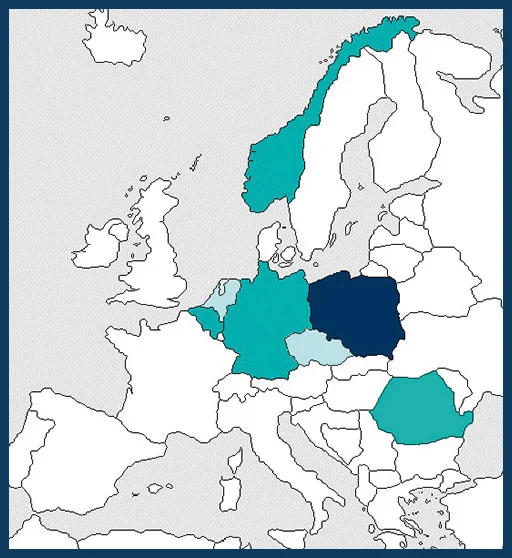01-2017 to 01-2020
€ 1,452,722
Dr. Wiktor Kotowski
w.kotowski@uw.edu.pl
University of Warsaw, Warsaw, POLAND (Coordinator)
University of Antwerp, Antwerp, BELGIUM Charles University, CZECH REPUBLIC
University of Greifswald, Greifswald, GERMANY
Norwegian Institute of Bioeconomy, Ås, NORWAY
Research and Danube Delta Institute for Research and Development, Tulcea, ROMANIA
Wetlands International European Association, Ede, THE NETHERLANDS

Peat soils around the world represent the most concentrated stores of soil carbon. Most of them have been storing carbon dioxyde for thousands of years, but the drainage process, following agricultural measures, has turned most of European peatlands from major carbon sinks to significant sources of carbon released into the atmosphere. Rewetting is a well-established method for peatlands restoration to improve climate change mitigation and other ecosystem services provision. However, surprisingly little is known regarding the ability of peatlands restoration’s process to reinstate carbon accumulation, as well as regarding the enhancement of this process – especially in groundwater-fed fens, which are far less investigated in this respect than rainwater-fed bogs, with different mechanisms of peat accumulation.
The REPEAT project aims to clarify the mechanisms of peat formation in fens by linking biogeochemical processes to soil community structure and biodiversity, as well as to plant belowground litter quality, with special focus on the prospects of restoring peat formation.
In order to compare undrained, drained and rewetted fens, the REPEAT project will analyse ecosystem processes in four specific study areas: Belgium, Germany, Poland and Romania, and supplement this study with ex-situ mesocosm and laboratory experiments. Peat formation will be measured in all sites, both by direct methods and by calculating balance between production and decomposition of organic matter. Diversity of producer and decomposer communities will be described and quantified in functional terms. Using modelling tools project results will be translated into ecosystem processes and integrated with terrestrial climate models.
Stakeholders in participating countries will be integrated through workshops, side events, and field days. End-users at the EU, national, and regional level are identified. A key stakeholder (Wetlands International) is involved as a consortium partner. The project will advance the knowledge base for process-oriented restoration of fens and will directly impact the application of related policy. REPEAT project will consolidate the peatland ecology expertise of five institutions cove- ring the most important European fen regions to obtain the best state-of-the-art knowledge about fen peat formation processes.